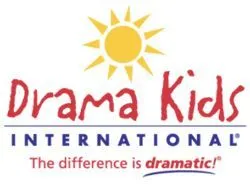Marriott International Franchise For Sale
- Investment from: 74082490 $
- Payback from: 0 mon.
- Turnover/month from: 0 $
Marriott International: A Legacy of Growth and Innovation in Hospitality
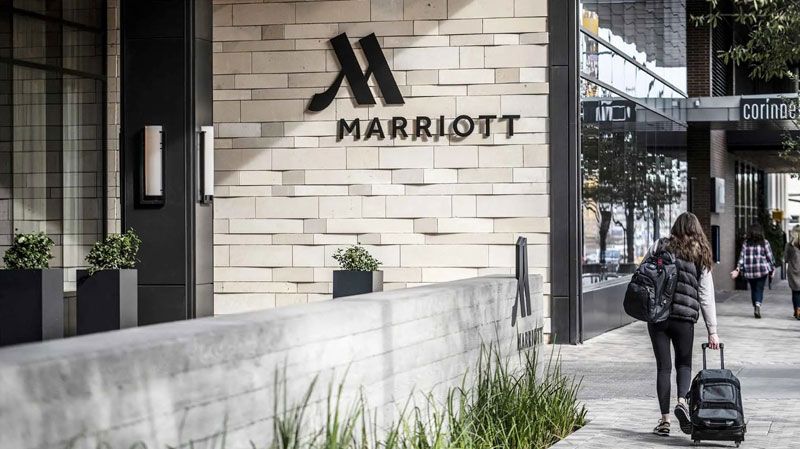
Marriott International is a symbol of excellence, innovation, and impeccable service in the global hospitality industry. From its humble beginnings as a family-run business to its status today as a global empire, the brand has continually evolved to meet the changing demands of the market. Its strategic growth, technological advancements, and commitment to sustainability have made it a powerhouse in hotel management. This article delves deeply into the history, strategies, and future outlook of Marriott International, offering insights into the factors behind its enduring success and global reputation.
Marriott International: A Global Hospitality Leader
A Brief History of Marriott’s Rise to Success
From a Family-Owned Inn to a Global Empire
Marriott International’s journey commenced in 1927, when the enterprising duo J. Willard and Alice Marriott unveiled a modest root beer stand in Washington, D.C., inspired by their desire to provide a refreshing respite from Utah’s searing summer heat. Determined to offer more than just refreshments, the couple introduced unique flavors to their A&W root beer stand and ensured unmatched customer service. Their iconic "Hot Shoppe" swiftly emerged as a cherished community landmark, embodying a unique blend of conviviality and unparalleled hospitality. Notably, J. Willard Marriott often greeted customers personally, ensuring every diner felt valued. This hands-on approach not only built trust but also established a reputation for exceptional service, laying the foundation for Marriott’s hotel chain future success. By 1937, their success allowed them to expand into the restaurant industry, solidifying their reputation as innovators in customer service.
In 1957, the company opened the Twin Bridges Marriott Motor Hotel in Arlington, Virginia, marking its official debut in the hospitality industry. The hotel became a game-changer by catering to the growing number of automobile travelers with features like ample parking and easy access to major highways. By the 1980s, Marriott’s reputation for combining luxury with convenience had propelled it into becoming a leading name in vacation destinations, business travel, and luxury hotels.
Key Acquisitions and Expansions
Marriott’s growth strategies include acquisitions and expansions, driven by meticulous decision-making. The 2016 acquisition of Starwood Hotels & Resorts Worldwide, for example, was a landmark $13 billion deal that added over 1,200 properties and iconic brands like Sheraton, Westin, and St. Regis to its portfolio. This decision was guided by detailed market analysis, ensuring that Marriott could strengthen its position in luxury hotels and business travel sectors.
Other strategic acquisitions include Protea Hotels in Africa, which allowed Marriott to capture a significant share of the emerging African market, and Delta Hotels in Canada, expanding its presence in North America. The brand’s decision-making process involves rigorous evaluations of cultural compatibility and operational efficiency, ensuring seamless integration of new brands while maintaining their unique identities.
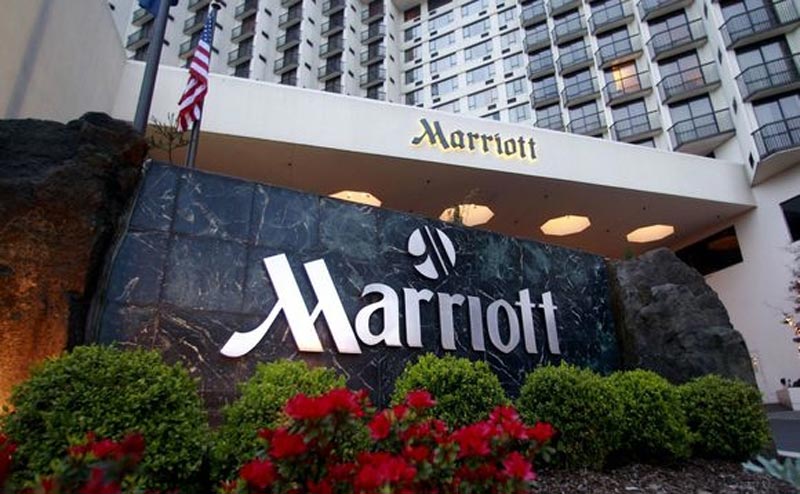
Marriott’s Core Values and Brand Identity
“Customer-First” Philosophy
Customer-first philosophy is exemplified in its commitment to personalized guest experiences. For instance, properties in Asia offer regionally inspired design and cuisine, while hotels in the Middle East provide halal-certified amenities and culturally sensitive services. Its loyalty program, Bonvoy, elevates this philosophy further by using data analytics to tailor rewards and exclusive experiences, such as once-in-a-lifetime culinary events or destination-based adventure packages.
Moreover, Marriott is known for its "Guest Voice" feedback program, where guest suggestions directly influence service improvements. This commitment to inclusivity and responsiveness ensures that every traveler, from luxury seekers to business professionals, feels valued.
Commitment to Quality and Service
Marriott invests heavily in training programs like its "Voyager Program". It includes leadership workshops, mentorship opportunities, and hands-on experience in various departments, helping participants develop essential skills for senior roles.
Properties are equipped with signature touches, including luxurious bedding, state-of-the-art fitness centers, and high-end spa experiences, ensuring guests enjoy unmatched quality at every price point.
Global Reach and Brand Recognition
Portfolio of 30 distinct brands ranges from the ultra-luxurious Ritz-Carlton to the millennial-friendly Moxy Hotels. Its presence in over 139 countries, including remote vacation destinations and bustling urban centers, ensures excellent brand reputation and accessibility for diverse traveler demographics.
Growth Strategies and Innovations
Strategic Acquisitions and Brand Diversification
Expanding the Portfolio with Acquisitions
Marriott’s acquisition of Elegant Hotels in the Caribbean is a prime example of aligning strategy with consumer trends. This move not only catered to the rising demand for luxury vacation destinations but also introduced all-inclusive packages that resonated with travelers seeking hassle-free experiences. By seamlessly integrating these properties, the brand not only capitalized on a lucrative niche but also upheld its prestigious luxury credentials through a meticulous adherence to high-caliber standards and strategic brand positioning. For instance, the company ensured that each new property adhered to its rigorous brand standards, including design excellence, premium amenities, and top-tier service.
Furthermore, the company leveraged targeted marketing campaigns to position these acquisitions as part of its upscale portfolio, reinforcing the brand’s identity while attracting discerning travelers.
Developing New Brand Categories
Marriott’s creation of Moxy Hotels, aimed at millennial travelers, is a testament to its adaptability. These properties feature open-plan social spaces, self-service check-in kiosks, and trendy designs, aligning with the tech-savvy, experience-driven preferences of younger generations. Similarly, the Edition brand redefines boutique luxury, offering exclusive design collaborations and curated local experiences.
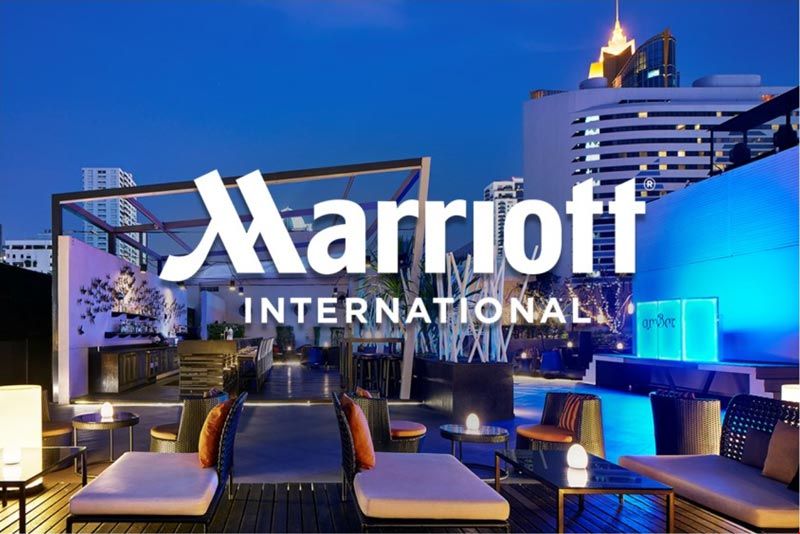
Global Expansion and Market Penetration
Targeting Key Growth Markets
In China, the brand has partnered with Alibaba to integrate its Bonvoy program with local e-commerce platforms, offering tailored promotions for Chinese travelers. In India, its properties highlight local craftsmanship and cuisine, catering to the growing domestic tourism market. By aligning with regional economic trends and cultural nuances, Marriott has maintained global expansion and stayed locally relevant.
Adapting to Local Cultures and Preferences
In Japan, the design of properties like the Ritz-Carlton Kyoto reflects traditional aesthetics, including Zen gardens and minimalist interiors. In Africa, partnerships with local artisans bring authentic cultural elements to their hotels, enhancing guest experiences while supporting local economies.
Technology and Innovation
Investing in Digital Platforms and Customer Experiences
The innovative Bonvoy app now integrates cutting-edge augmented reality city guides, offering travelers a dynamic and immersive way to explore their chosen destinations. It has also launched "Marriott Moments," an online platform that allows guests to book experiences like wine tours and live concerts, further enhancing its service offerings.
Implementing New Technologies for Efficiency and Guest Satisfaction
The hotel chain’s smart rooms include AI-powered personalization features, such as temperature and lighting settings based on guest preferences. These innovations streamline operations and elevate the Marriott customer experience.
Sustainability and Social Responsibility
Commitment to Environmental Sustainability
Serve 360 framework includes ambitious initiatives, such as constructing LEED-certified buildings and sourcing ingredients from sustainable farms. Collaborations with organizations like WWF and Clean the World have resulted in impactful projects, such as coral reef restoration programs in the Caribbean and global soap recycling campaigns.
Supporting Local Communities and Social Causes
By collaborating with nonprofit organizations, it has spearheaded impactful initiatives such as "Bridging the Gap". This initiative is designed to create transformative employment opportunities for underserved youth and foster economic empowerment in local communities. These initiatives not only uplift communities but also reinforce the chain’s social responsibility ethos.
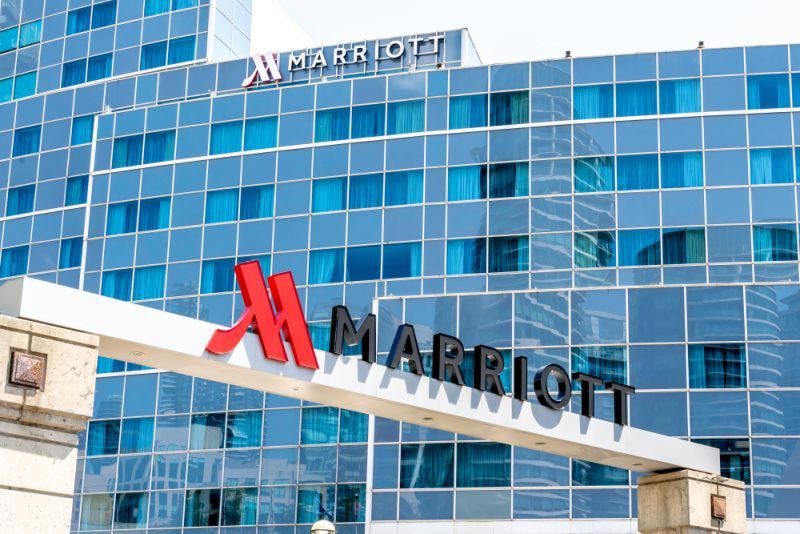
Key Factors Contributing to Marriott’s Success
Strong Leadership and Vision
Leadership Strategies for Growth and Innovation
Marriott’s leadership fosters innovation through initiatives like "TestBED," a startup accelerator for hospitality-focused technologies. This visionary program scouts promising ventures and integrates their solutions into operations, ensuring the company consistently pioneers industry trends. Additionally, by encouraging cross-functional collaboration among its leadership teams, the company cultivates a culture of ideation and forward-thinking solutions that keep it ahead in the fiercely competitive hospitality sector.
Building a Culture of Excellence
The "Spirit to Serve" culture prioritizes employee well-being, resulting in high job satisfaction and low turnover rates. This strong internal culture directly translates into superior guest experiences.
Customer Focus and Satisfaction
Understanding Customer Needs and Preferences
Use of AI-driven tools that analyze customer data to predict preferences, enabling hyper-personalized services like bespoke dining experiences or tailored wellness packages.
Delivering Exceptional Guest Experiences
Its signature "Surprise and Delight" initiative goes beyond conventional hospitality norms by incorporating unexpected, meaningful gestures that resonate with guests on a personal level. Examples include bespoke itineraries for travelers celebrating milestones, locally inspired welcome gifts, or exclusive access to cultural experiences. These thoughtful touches foster emotional connections, ensuring guests not only return but also become brand ambassadors.
Financial Strength and Investment
Smart Investments in Acquisitions and Growth
Marriott’s acquisitions strategy emphasizes not only portfolio expansion but also alignment with emerging consumer preferences. For instance, the integration of brands like Starwood and Elegant Hotels underscores the brand’s intent to dominate the luxury and all-inclusive market segments. These strategic moves are supported by detailed financial modeling and trend analysis, ensuring acquisitions yield long-term profitability. By embedding sustainability practices into newly acquired properties, this hotel chain also reinforces its commitment to responsible growth.
Maintaining a Strong Financial Position
Prudent fiscal management underpins Marriott’s enduring stability. Through strategies such as diversified revenue streams, meticulous cost control, and leveraging economies of scale, the company has consistently delivered robust financial performance. Even during crises like the COVID-19 pandemic, its adaptive measures, including debt restructuring and strategic asset sales, ensured liquidity and resilience, positioning it for a swift recovery.
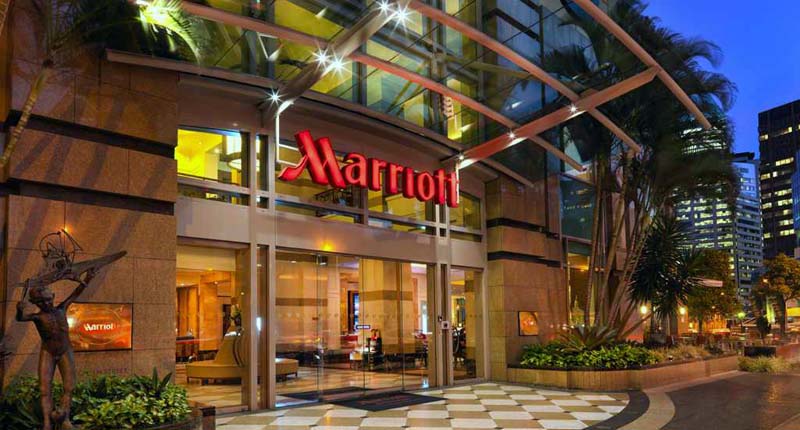
The Future of Marriott International
Challenges and Opportunities for the Future
Responding to Changing Consumer Preferences
The brand is adept at interpreting shifting consumer preferences, such as the growing demand for wellness and sustainability. By incorporating features like meditation pods, eco-friendly dining options, and nature-integrated architecture, the company aligns its properties with these trends. This proactive approach ensures the brand remains relevant across generations of travelers.
Navigating the Impact of Technology
Marriott envisions a future where technology and hospitality intertwine seamlessly. From blockchain-powered booking systems to AI-enhanced virtual assistants, it is exploring groundbreaking tools to enhance operational efficiency and guest satisfaction. For example, dynamic pricing algorithms tailored to real-time demand patterns ensure optimized revenue while maintaining competitive advantage.
Maintaining Competitive Advantage
Investing in comprehensive market research allows Marriott to anticipate hospitality industry shifts and maintain its edge. By fostering strategic partnerships with tech innovators and sustainability experts, the company secures its leadership position in an increasingly competitive landscape.
The Role of Innovation and Technology
Embracing Emerging Technologies
Marriott’s embrace of advanced technologies, such as AI-powered personalisation, and augmented reality city guides, is reshaping the guest experience. Virtual reality room previews, for instance, provide prospective guests with immersive insights into accommodations, while robotic concierge services streamline check-ins and enhance efficiency. These innovations reflect the brand’s commitment to staying ahead in the tech-driven era.
Developing New and Innovative Experiences
Augmented reality (AR) is another area where the hotel chain is pushing boundaries. By integrating AR into in-room entertainment and offering interactive destination guides, Marriott provides immersive and educational experiences that delight tech-savvy travelers. Collaborations with local artists and content creators further enhance the uniqueness of these offerings, blending Marriott technology with cultural authenticity.
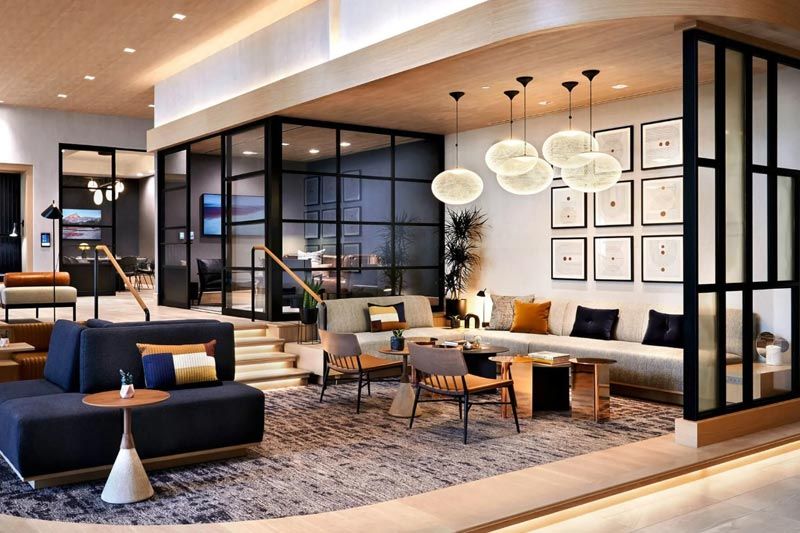
Building a Sustainable Future for Hospitality
Sustainability Initiatives and Practices
Under its "Green Hotels" initiative, Marriott’s sustainability plan lies in pursuing carbon-neutral operations through advanced technologies such as energy recovery ventilation systems and geothermal heating. Furthermore, its emphasis on sustainable supply chains ensures that every aspect of its operations aligns with eco-friendly principles. Projects like coral reef restoration in partnership with environmental NGOs highlight its proactive role in combating climate change.
Creating a Positive Social Impact
Through programs like "Journey to Tomorrow," the brand empowers communities by fostering education, entrepreneurship, and skill development. For instance, partnerships with vocational training centers equip underserved youth with industry-relevant skills, opening doors to meaningful employment. These initiatives not only uplift local economies but also reinforce Marriott’s role as a socially conscious global leader.
Marriott International’s pioneering growth strategies, relentless innovation, and steadfast dedication to sustainability have solidified its stature as a vanguard in the hospitality domain. By embracing new technologies, prioritizing customer satisfaction, and fostering a culture of excellence, Marriott is well-equipped to navigate future challenges and opportunities, ensuring its continued success in the ever-evolving global market.

Written by
Topfranchise.com Editorial Team
The Topfranchise.com editorial team consists of professionals with years of experience in franchising, providing verified information for entrepreneurs and investors.
Learn more
of franchise
business

 USA
USA India
India Canada
Canada The UK
The UK Indonesia
Indonesia The Philippines
The Philippines Australia
Australia The UAE
The UAE Saudi Arabia
Saudi Arabia South Africa
South Africa Germany
Germany Pakistan
Pakistan Singapore
Singapore Malaysia
Malaysia